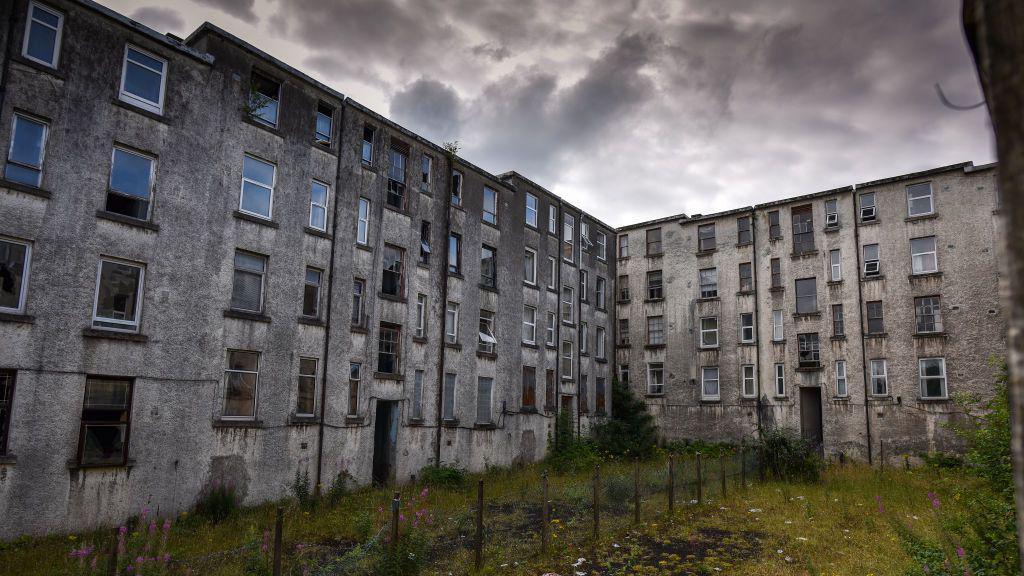Flats in 'Scotland's Chernobyl' to be demolished

The Clune Park estate has been falling into disrepair for years
- Published
Part of a housing estate which has been dubbed "Scotland's Chernobyl" is to be demolished after the council issued dangerous building notices for 138 properties.
Most of the Clune Park estate in Port Glasgow has been a derelict wasteland for decades and its unoccupied homes have become a magnet for urban explorers.
Inverclyde Council, which issued the notices on 16 July, believes the buildings are beyond repair and should be knocked down.
Two listed buildings, a former church and primary school, have also been approved for demolition.
It is thought there are now fewer than 20 people living in the 45 four-storey tenements
The first tenements in Clune Park were built in 1905 to house shipyard workers, with others added in later decades.
The homes became increasingly run down and derelict with the demise of Port Glasgow's shipbuilding industry.
It is thought there are now fewer than 20 people living in the 45 four-storey tenements containing hundreds of flats.
Most of the buildings are listed as BTS (Below Tolerable Standard).
The dangerous building notices are the latest stage of the Clune Park Regeneration Plan which aims to demolish all 45 original buildings within the estate and build new housing units in their place.
The council, which owns over 50% of the estate, had invited private owners to appeal against the notices but no objections were received by the deadline of 6 August.
Tenders for the demolition of the flats, school and church are currently being sought.